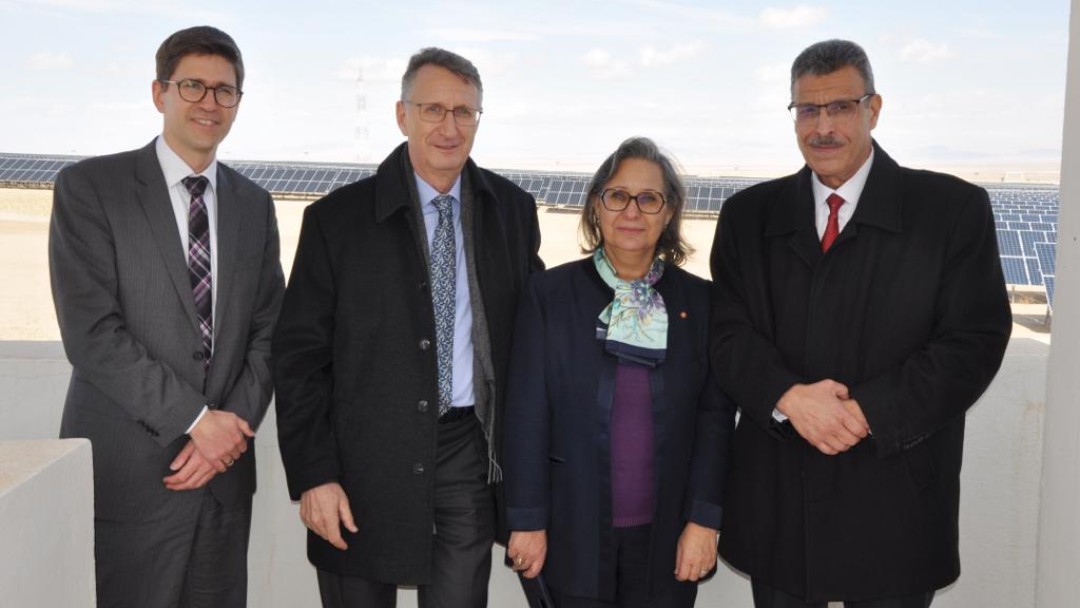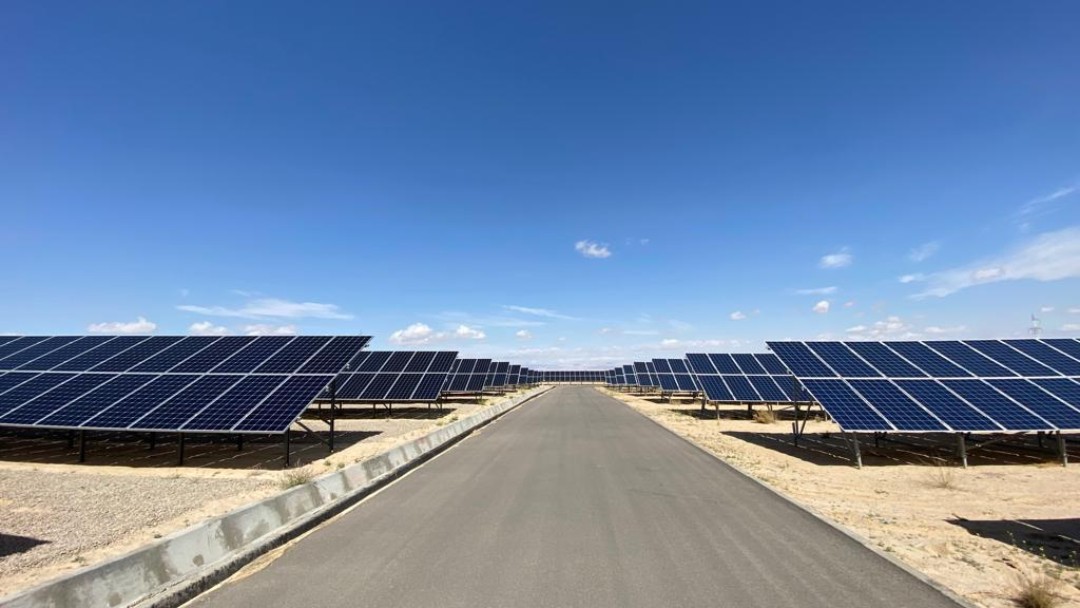News from 2022-03-07 / KfW Development Bank
Solar power plant on the edge of the Sahara - milestone for the energy transition in Tunisia

On 5 March, the country's second photovoltaic power plant was inaugurated in Tozeur in southwest Tunisia - an important milestone in the implementation of the Tunisian solar plan and the country's energy transition. The presence of the Tunisian Minister of Energy, Neila Nouira Gongi, the German Ambassador Peter Prügel and other representatives of the project executing agency STEG (Société tunisienne de l'électricité et du gaz) took into account the importance of the 10-megawatt power plant: by 2030, 30% of the electricity is to be generated from renewable energies. The plant was already successfully connected to the grid at the beginning of the year. The first plant in Tunisia, Tozeur I, also has a capacity of 10 MW.
Tunisia's Solar Plan (Plan Solaire Tunisien, PST) sets a target for total installed renewable energy capacity of 1860 megawatts (MW) by 2023 and 3815 MW by 2030, a fivefold and tenfold increase, respectively, of the 2017 installed capacity, with about 280 MW currently installed. During COP26 in Glasgow, Tunisia presented the update of its NDC. In it, the Tunisian government increases its climate ambition and commits to a 46% reduction in climate intensity by 2030 compared to 2010 - an ambitious plan.

Thorsten Schneider, KfW Director for Energy North Africa, said: "The Tozeur I and Tozeur II power plants were the first large-scale photovoltaic plants in Tunisia to go into operation and feed green electricity into the Tunisian power grid. We are proud to have accompanied our partners, the Ministry of Energy and STEG, in the realisation of this important milestone in Tunisia's energy transition."
The financing was concluded through a low-interest loan from KfW in the amount of EUR 11.5 million. However, it was possible to achieve a significant cost reduction: instead of EUR 11.5 million, only around EUR 8 million. The funds released are to be used for a pilot component "battery storage".
Currently, the Tunisian energy sector can only guarantee a sustainable and resource-efficient electricity supply to a limited extent. Electricity is mainly generated from fossil fuels, especially natural gas. Electricity generation from renewable energies is not only climate-friendly, but also offers significant economic value for the Tunisian national budget due to lower production costs compared to electricity from gas. The potential for the expansion of renewable energies - especially solar and wind power, and consequently also for the production of green hydrogen - in the country is great, and the location of Tozeur is also very suitable.

Share page
To share the content of this page with your network, click on one of the icons below.
Note on data protection: When you share content, your personal data is transferred to the selected network.
Data protection
Alternatively, you can also copy the short link: https://www.kfw-entwicklungsbank.de/s/enzBWrMC.CqPA
Copy link Link copied